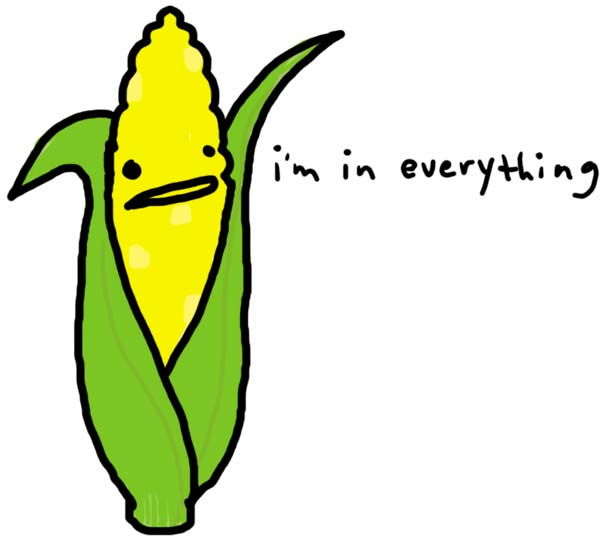You’ve probably heard of this guy already here or here, but if not, Daniel Suelo deserves a shout-out. He’s lived 9 years in a cave in Utah, surviving on dumpster diving, foraging and occasionally hunting, and he blogs about it here.
Category: health

Just in case this new starlet wasn’t cool enough, she took time off to “shovel goat manure” and other eco-tastic chores on a sustainable farm after shooting Juno. See full article here: USAToday.
Great article in the NYT about how environmentally friendly straw houses are, but then the twist: they’re great in an earthquake!

I have written before about straw building here, that time inspired by the New Orleans Common Ground Collective, who was using straw bale building as a cheap way to house returning Orleaneans.
Nothing inspires me more than this kind of thinking and utilization of resources!! 🙂

Just in case you weren’t convinced that our synthetic surroundings were causing you cancer and countless other illnesses, here’s an article from treehugger stating the following disturbing findings:
TreeHugger has been reporting for years about the dangers of phthalates, the endocrine disruptor that is used to make vinyl flexible. We have noted previously that it might cause “phthalate syndrome”- smaller penises, and undescended or incompletely descended testicles- in humans…
But NOW:
Now a new study links it to autism. Scientific American says that the Swedish study was looking for something else, a relationship between phthalates and allergies, but found that “Infants or toddlers who lived in bedrooms with vinyl, or PVC, floors were twice as likely to have autism five years later, in 2005, than those with wood or linoleum flooring.”
Link to actual article, reproduced in full:

Published on Wednesday, November 12, 2008 by The Daily Mail/UK
Why Eating GM Food Could Lower Your Fertility
by Sean Poulter
Genetically modified corn has been linked to a threat to fertility in an official study that could deliver a hammer blow to controversial ‘Frankenstein Food’.
Most of the research on GM crop safety has been conducted by biotech companies, such as Monsanto, rather than outside independent laboratories. A long-term feeding trial commissioned by the Austrian government found mice fed on GM corn or maize had fewer offspring and lower birth rates.
The trial has triggered a call from Greenpeace for a recall of all GM food crops currently on the market worldwide on the grounds of the threat to human health.
Most of the research on GM crop safety has been conducted by biotech companies, such as Monsanto, rather than outside independent laboratories.
GM advocates have argued that the fact the US population has been eaten some types of GM food for more than a decade is proof of its safety.
However, these reassurances have been turned on their head by the study commissioned by the Austrian Ministries for Agriculture and Health, which was presented yesterday at a scientific seminar in Vienna.
Professor Dr Jurgen Zentek, Professor for Veterinary Medicine at the University of Vienna and lead author of the study, said a GM diet effected the fertility of mice.
GM expert at Greenpeace International, Dr Jan van Aken, said: ‘Genetically Engineered food appears to be acting as a birth control agent, potentially leading to infertility.
‘If this is not reason enough to close down the whole biotech industry once and for all, I am not sure what kind of disaster we are waiting for.
‘Playing genetic roulette with our food crops is like playing Russian roulette with consumers and public health.’
The Austrian scientists performed several long-term feeding trials with laboratory mice over a course of 20 weeks.
One of the studies was a so-called reproductive assessment by continuous breeding (RACB) trial, in which the same parent generation gave birth to several litters of baby mice.
The parents were fed either with a diet containing 33per cent of GM maize, a hybrid of Monsanto’s MON 810 and another variety, and a normal feed mix..
The team found changes that were ‘statistically significant’ in the third and fourth litters produced by the mice given a GM diet. There were fewer offspring, while the young mice were smaller.
Prof Zentek said there was a direct link between the changes seen and the GM diet.
A press release from the Austrian Agency for Health and Nutrition, said the group of mice given a diet of genetically engineered corn saw a significant change in fertility.
It said: ‘The number of litters and offspring decreased in the GE-fed group faster than in the control. In the GE-fed group more females remained without litters than in the control group.’
Monsanto press offices in the UK and USA were unable to provide a comment on the findings.
CropGen, which speaks for the biotech industry, claims GM crops have been accepted as safe by Government authorities on both sides of the Atlantic.
British scientists recently unveiled a GM purple tomato they claimed could help people avoid developing cancer. The tomato is high in antioxidants – naturally found in other fresh produce such as blueberrys, cranberries and carrots – which are seen as a protection against ill health.
The BBC reports today that downtown Detroit is taking new shape with a rash of urban gardens.
In a town which symbolizes the rust belt, left over from the car industry, a new group Urban Farming has taken it upon themselves to breath some life into the city.
Visiting one of the largest allotments, on a site that had been derelict since Detroit’s infamous 1967 riots, locals spoke about an astonishing transformation.
Derelict streets highlight Detroit’s tough past and present
“There is something that every hand in this area can do,” said Rose Stallard, who is keen to enlist as many volunteers as possible to help tend the garden and its precious crops.
Urban gardening has grown hugely since the onset of the concern over Global Warming, but what is remarkable is how versatile and mutlitalented it is. Community gardens have been reported to help nearby residents economically and socially as well as easing racial and gender divides and building community and lowering crime. Natural is the answer friends!
The BBC reports on the rising cost of basic staples, such as wheat, soy, rice and corn. Surprisingly, corn is the least affected of those mentioned. For the last few months, corn used for biofuel has been blamed for the violence and protests over the cost of food. It was said that the land cleared for the biofuel production was leaving less room to grow food, and while this is true, it is the least liable of the trifecta affecting food prices.
The main culprits?
Increased population (It is estimated to reach 9 Billion by mid-century)

Increased Wealth in China and India (The trade and technology booms have hugely increased the number of wealthy- even middle class- citizens. This means they are adding meat, dairy and grains to their diets that may not have been before)

The third is a vast increase in the volume of food consumed globally. (From 1980-2007 the world went from eating 20kg of meat to 50kg on average.)
Ck’s Weblog posted “50 ways to Help the Planet.” Awesome!
Here’s a clip:
* DON’T RINSE
Skip rinsing dishes before using your dishwasher and save up to 20 gallons of water each load. Plus, you’re saving time and the energy used to heat the additional water.* DO NOT PRE-HEAT THE OVEN
Unless you are making bread or pastries of some sort, don’t pre-heat the oven. Just turn it on when you put the dish in. Also, when checking on your food, look through the oven window instead of opening the door.*RECYCLE GLASS
Recycled glass reduces related air pollution by 20 percent and related water pollution by 50 percent. If it isn’t recycled it can take a million years to decompose.* DIAPER WITH A CONSCIENCE
By the time a child is toilet trained, a parent will change between 5,000 and 8,000 diapers, adding up to approximately 3.5 million tons of waste in U.S. landfills each year. Whether you choose cloth or a more environmentally-friendly disposable, you’re making a choice that has a much gentler impact on our planet.*HANG DRY
Get a clothesline or rack to dry your clothes by the air. Your wardrobe will maintain color and fit, and you’ll save money. Your favorite t-shirt will last longer too.*GO VEGETARIAN ONCE A WEEK
One less meat-based meal a week helps the planet and your diet. For example: It requires 2,500 gallons of water to produce one pound of beef. You will also also save some trees. For each hamburger that originated from animals raised on rainforest land, approximately 55 square feet of forest have been destroyed.
And what do you do if you can’t afford organic? Stop eating it all together I guess.


